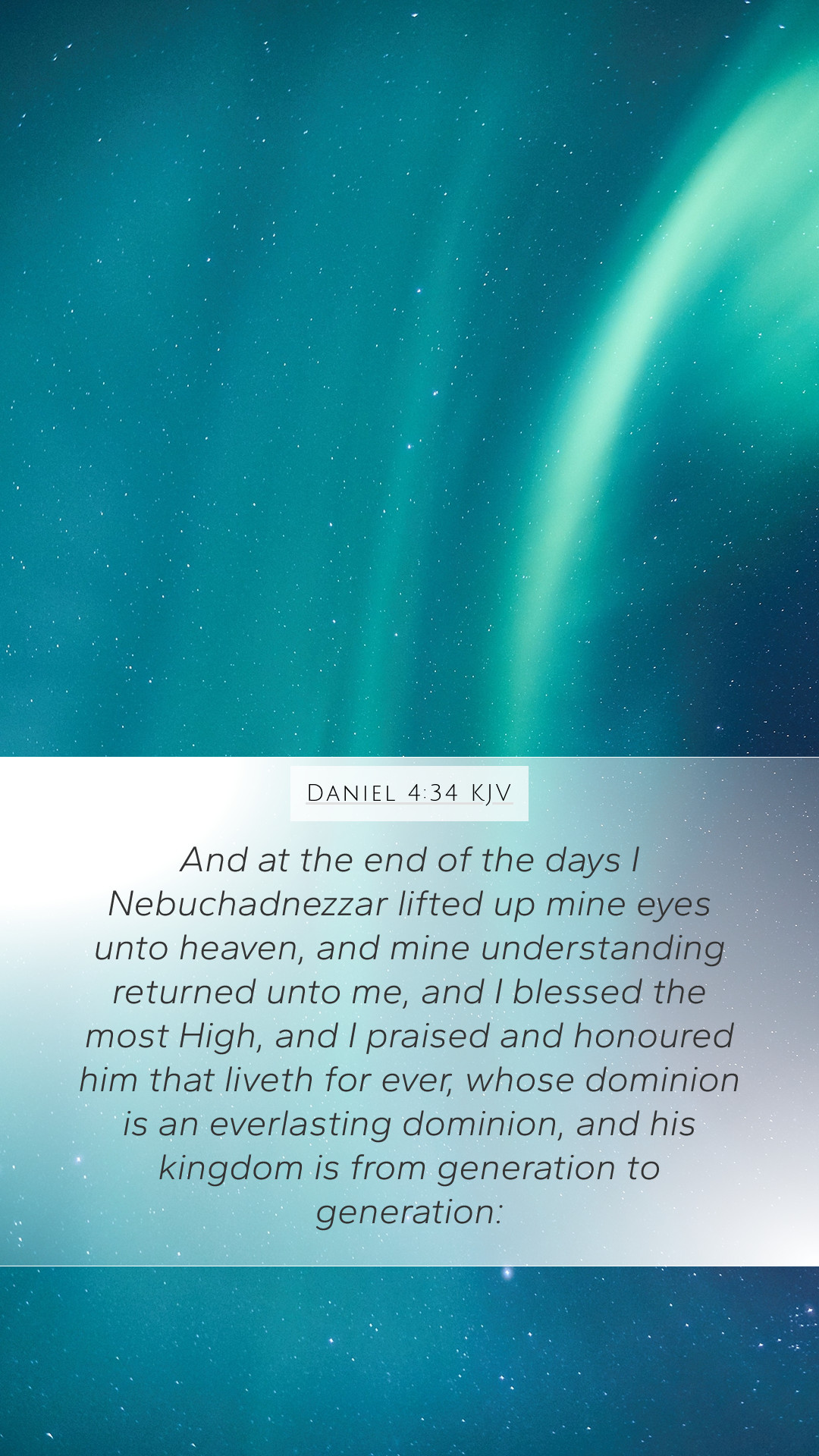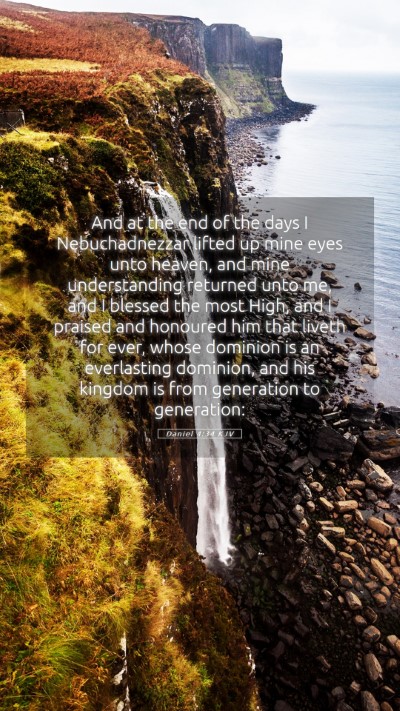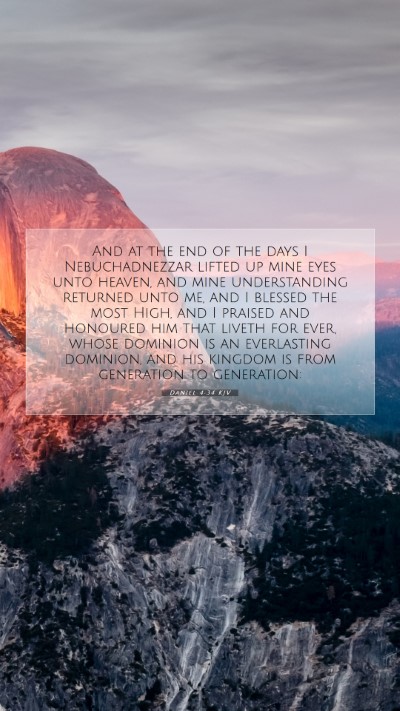Understanding Daniel 4:34
Daniel 4:34: "And at the end of the days I, Nebuchadnezzar, lifted up mine eyes unto heaven, and mine understanding returned unto me; and I blessed the most High, and I praised and honoured him that liveth for ever, whose dominion is an everlasting dominion, and his kingdom is from generation to generation."
Bible Verse Meaning
This verse marks a pivotal moment of realization and transformation for Nebuchadnezzar, the Babylonian king. After experiencing a period of madness as a punishment for his pride and arrogance, he ultimately acknowledges the sovereignty of God over all creation. The act of lifting his eyes to heaven signifies a shift from earthly concerns to a recognition of divine authority.
- Divine Sovereignty: This passage emphasizes that God’s dominion is eternal, highlighting the contrast between God's everlasting rule and the transient nature of earthly power.
- Restoration of Understanding: Nebuchadnezzar's restored understanding symbolizes the power of repentance and humility. It suggests that true wisdom comes from acknowledging God, which aligns with biblical themes of humility and reverence.
- Praise and Worship: The king's response of blessing, praising, and honoring God underscores the appropriate response to divine revelation—a posture of worship that reflects gratitude and recognition of God’s greatness.
Bible Verse Interpretations
Public domain commentaries by notable scholars help illuminate the rich meaning behind this scripture.
Matthew Henry’s Commentary
Henry highlights the significance of Nebuchadnezzar's acknowledgment of God after a period of suffering, which reflects the human journey towards repentance. His restoration is a testament to the mercy of God. Henry notes that even powerful kings must ultimately submit to divine authority and suggests that this passage serves as a warning against pride and a reminder of the mercy that comes with repentance.
Albert Barnes’ Commentary
Barnes emphasizes the theological implications of Nebuchadnezzar’s proclamation regarding God's eternal dominion. He indicates that this moment illustrates the principle that God remains in control regardless of human tumult. This acknowledgment signifies a broader truth applicable to all believers about the nature of God which remains relevant in contemporary Bible studies.
Adam Clarke’s Commentary
Clarke provides insight into the metaphorical "lifting up of eyes," discussing it as an act of seeking wisdom and divine insight. He elaborates on how Nebuchadnezzar's healing—both mentally and spiritually—is complete once he recognizes the greatness of God. Clarke emphasizes that this narrative serves as a profound lesson on humility and the need to trust in divine providence.
Bible Study Insights
For those engaged in Bible study groups or online Bible study, this verse offers rich terrain for discussion regarding faith, repentance, and the nature of divine kingship. Key topics include:
- Exploration of God's sovereignty versus human authority.
- The nature of humility and the path to spiritual restoration.
- Real-life applications of responding to divine truth in today's context.
Related Bible Cross References
- Psalms 145:13: "Thy kingdom is an everlasting kingdom, and thy dominion endureth throughout all generations."
- Isaiah 45:22: "Look unto me, and be ye saved, all the ends of the earth: for I am God, and there is none else."
- 1 Timothy 6:15: "Which in his times he shall show, who is the blessed and only Potentate, the King of kings, and Lord of lords."
Conclusion
Daniel 4:34 serves as a remarkable illustration of redemption through acknowledgment of God’s sovereignty. It challenges readers to reflect on their understanding of power, authority, and humility. This passage, explored through various commentaries, provides valuable insights enabling deeper comprehension for anyone seeking to understand Scripture and its applications to life.


